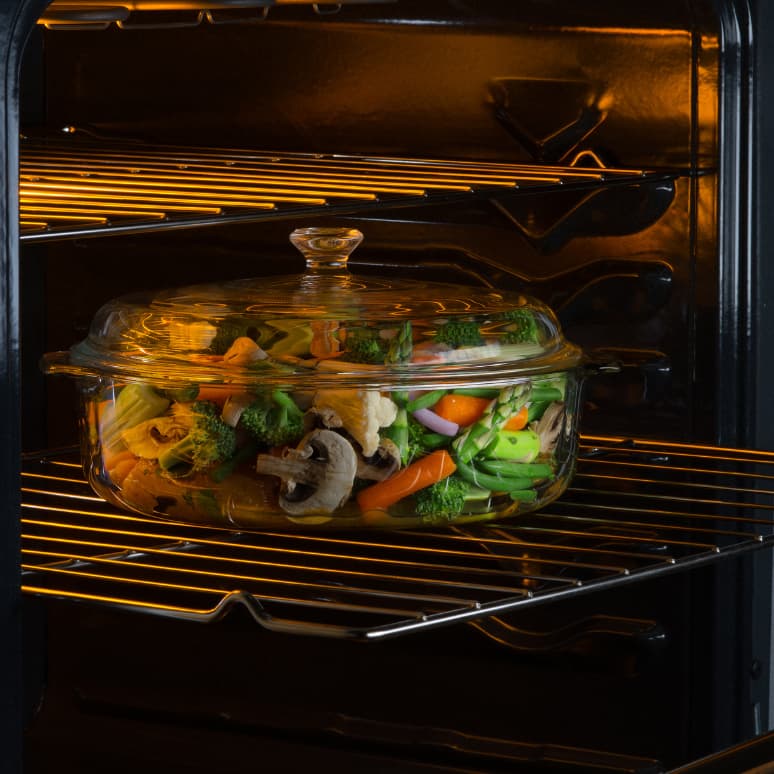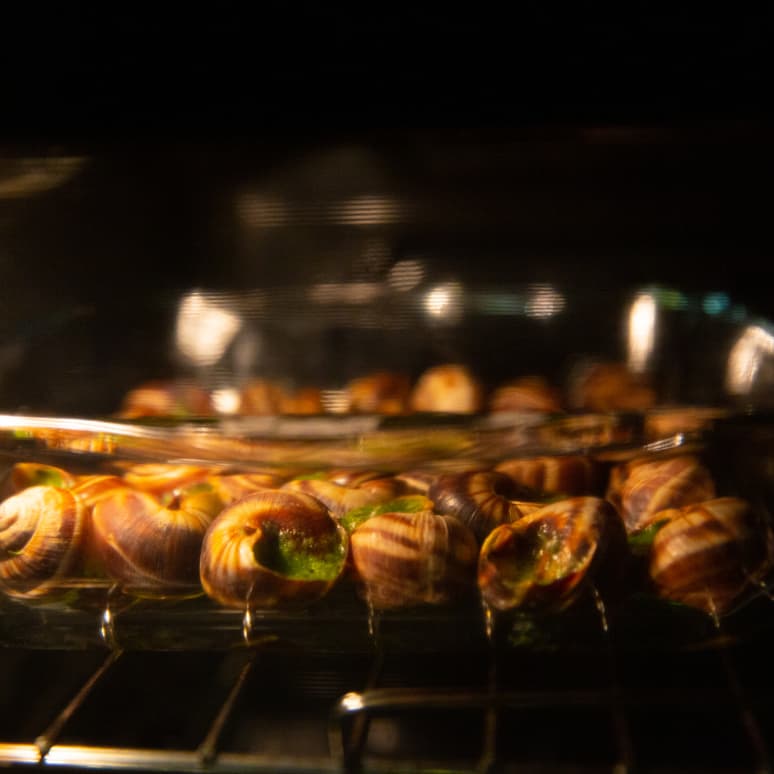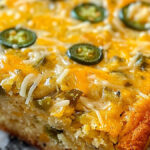Wondering whether it’s safe to put glass in the oven without it breaking or cracking? Let’s delve into the nuances of using glassware in the oven to ensure your cooking experience is not only safe but also hassle-free.
Understanding Glass in the Oven
Glass pans, such as casserole dishes and pie plates, are explicitly designed for oven use. However, not all glass is created equal in terms of heat resistance. While certain glassware is labeled as oven-safe, others may not withstand the high temperatures required for baking or roasting.
What Types of Glass Are Safe for the Oven?
Glass labeled as “oven-safe” is specifically manufactured to endure the rigors of oven cooking. This designation ensures that the glass can withstand the temperature fluctuations typical of oven use without cracking or shattering. It’s imperative to adhere to this labeling to avoid potential hazards associated with using non-oven-safe glassware.
Common Risks Associated with Using Glass in the Oven
Glassware is susceptible to breakage or cracking under certain conditions, including:
Rapid Temperature Shifts
Glass can succumb to thermal shock when exposed to extreme temperature changes. For instance, transferring a cold glass container directly from the refrigerator to a preheated oven can cause it to fracture due to the sudden temperature differential.
Non-Tempered Glass
Tempered glass is engineered to withstand thermal stress, making it suitable for oven use. Conversely, non-tempered glass, such as drinking glasses or standard glass dishes, lacks the requisite durability for oven cooking and should be avoided.
High-Temperature Exposure
Even oven-safe glass has its limits when it comes to temperature tolerance. Exceeding the recommended temperature range specified by the manufacturer can compromise the integrity of the glass, leading to potential breakage.

Tips for Safely Using Glass in the Oven
To mitigate the risk of glass breakage while baking or roasting, follow these essential guidelines:
Allow for Gradual Temperature Adjustment
When transitioning glassware from the refrigerator to the oven, allow it to acclimate to room temperature to prevent thermal shock.
Verify Oven-Safe Labeling
Always confirm that the glassware bears the “oven-safe” designation before using it in the oven to ensure its suitability for high-temperature cooking.
Adhere to Temperature Limits
Stay within the recommended temperature range specified by the manufacturer to safeguard against glass failure due to overheating.
Inspect for Damage
Prior to oven use, inspect the glassware for any signs of damage, such as cracks or scratches, which can weaken its structural integrity and predispose it to breakage.
Use Moisture with Dry Foods
To prevent thermal shock when cooking dry foods, add a small amount of water to the bottom of the glassware to counteract temperature differentials.

Benefits of Glass Cookware in the Oven
Despite the precautions involved, utilizing glass cookware offers several distinct advantages:
Non-Toxic Composition
Glass is inherently non-toxic, ensuring that no harmful chemicals leach into your food during the cooking process, unlike certain metal or non-stick cookware.
Ease of Cleaning
Glass is renowned for its effortless cleanup, requiring only soap and water to remove food residue and maintain a pristine cooking surface.
Versatile Storage and Reheating
Many glass containers come equipped with lids, facilitating seamless storage and reheating of leftovers directly in the same vessel.
Enhanced Serving Capabilities
Glass cookware retains heat effectively, making it ideal for serving dishes to guests while keeping them warm for extended periods.
Transparent Cooking Surface
Unlike opaque cookware, glass affords a clear view of the cooking contents, allowing for easy monitoring of the cooking progress and ensuring thorough doneness.
Selecting the Best Glass Cookware
When choosing glass cookware for oven use, opt for quality products that meet your specific needs. Consider investing in versatile baking sets, such as those with corresponding lids, to enhance your culinary endeavors while ensuring optimal safety and convenience.
In conclusion, while you can indeed put oven-safe glass in the oven, it’s crucial to exercise caution and adhere to the manufacturer’s guidelines to prevent breakage or other mishaps. By following these tips and leveraging the benefits of glass cookware, you can enjoy safe and satisfying oven cooking experiences with confidence.


